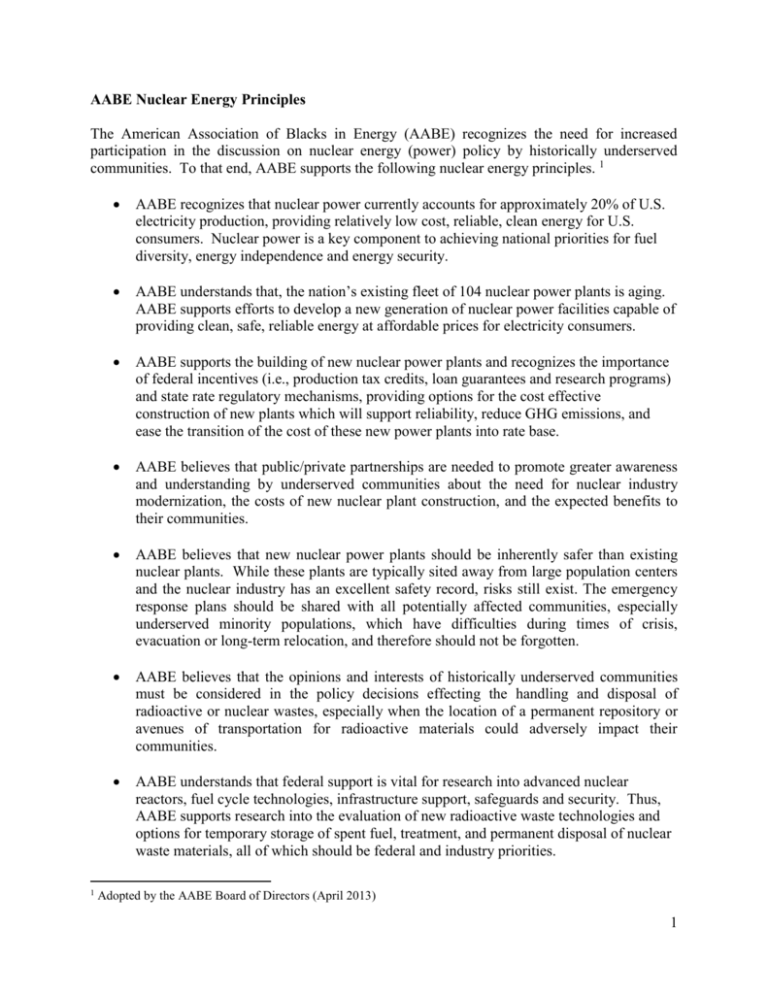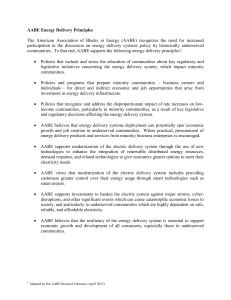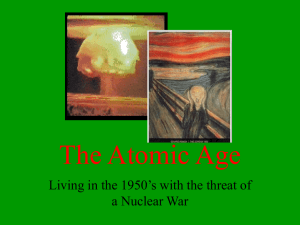Nuclear
advertisement

AABE Nuclear Energy Principles The American Association of Blacks in Energy (AABE) recognizes the need for increased participation in the discussion on nuclear energy (power) policy by historically underserved communities. To that end, AABE supports the following nuclear energy principles. 1 1 AABE recognizes that nuclear power currently accounts for approximately 20% of U.S. electricity production, providing relatively low cost, reliable, clean energy for U.S. consumers. Nuclear power is a key component to achieving national priorities for fuel diversity, energy independence and energy security. AABE understands that, the nation’s existing fleet of 104 nuclear power plants is aging. AABE supports efforts to develop a new generation of nuclear power facilities capable of providing clean, safe, reliable energy at affordable prices for electricity consumers. AABE supports the building of new nuclear power plants and recognizes the importance of federal incentives (i.e., production tax credits, loan guarantees and research programs) and state rate regulatory mechanisms, providing options for the cost effective construction of new plants which will support reliability, reduce GHG emissions, and ease the transition of the cost of these new power plants into rate base. AABE believes that public/private partnerships are needed to promote greater awareness and understanding by underserved communities about the need for nuclear industry modernization, the costs of new nuclear plant construction, and the expected benefits to their communities. AABE believes that new nuclear power plants should be inherently safer than existing nuclear plants. While these plants are typically sited away from large population centers and the nuclear industry has an excellent safety record, risks still exist. The emergency response plans should be shared with all potentially affected communities, especially underserved minority populations, which have difficulties during times of crisis, evacuation or long-term relocation, and therefore should not be forgotten. AABE believes that the opinions and interests of historically underserved communities must be considered in the policy decisions effecting the handling and disposal of radioactive or nuclear wastes, especially when the location of a permanent repository or avenues of transportation for radioactive materials could adversely impact their communities. AABE understands that federal support is vital for research into advanced nuclear reactors, fuel cycle technologies, infrastructure support, safeguards and security. Thus, AABE supports research into the evaluation of new radioactive waste technologies and options for temporary storage of spent fuel, treatment, and permanent disposal of nuclear waste materials, all of which should be federal and industry priorities. Adopted by the AABE Board of Directors (April 2013) 1 AABE believes that with the need for building a new generation of nuclear power plants, industry training and deployment can potentially spur economic growth and job creation for underserved communities including supplier diversity. Many current industry workers are expected to retire in the coming decade as new plants begin to enter service. Programs supporting the preparation and education of historically underrepresented communities and minority students should be prioritized as avenues for jobs and careers in the nuclear industry. 2






